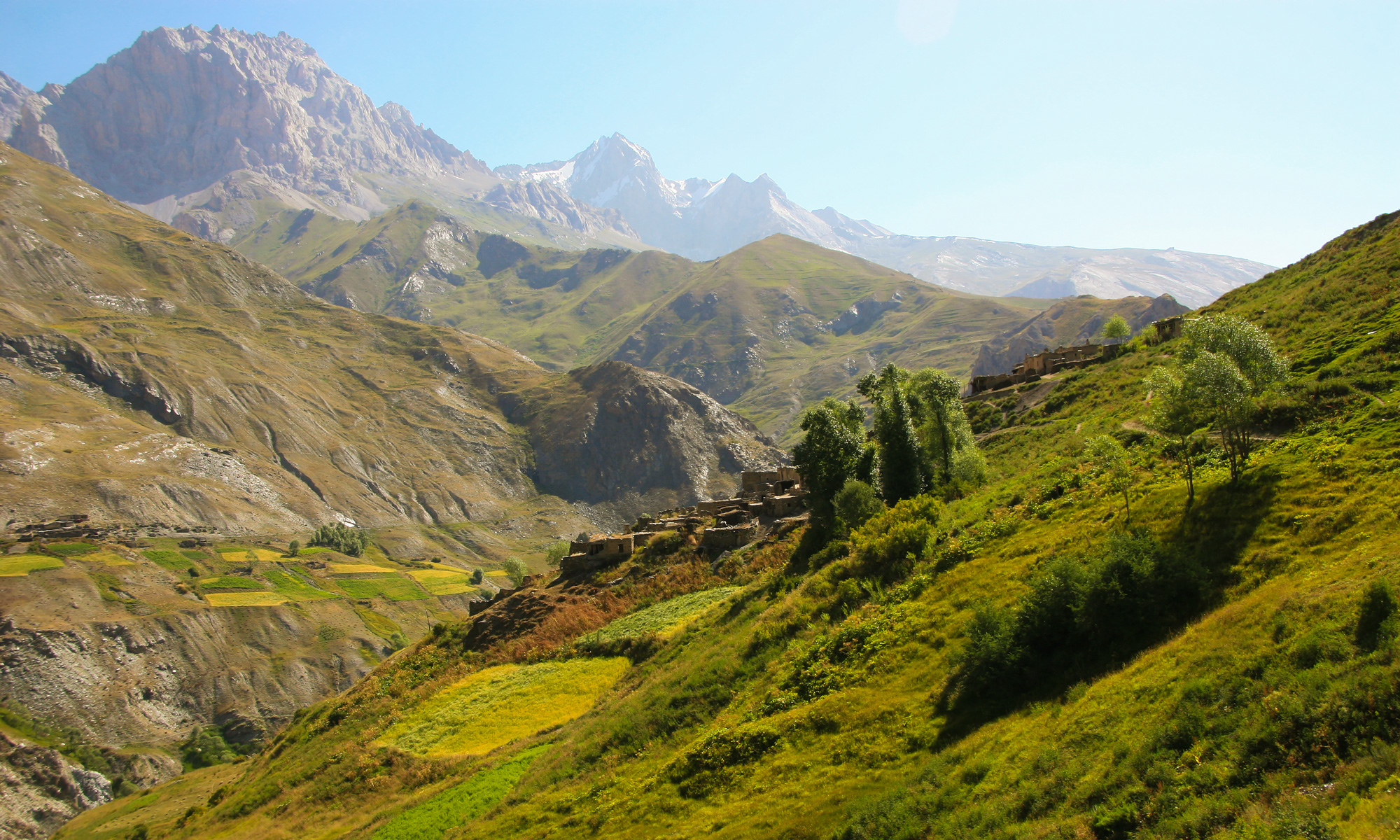“There were no roads, no homes, no money. Only mountains. But also we had our people. And that was enough to begin again.”
— Returnee, Bedef village
When the Soviet Union collapsed, a door quietly opened.
It wasn’t a wide door. It wasn’t marked. But through it came the quiet, determined footsteps of families who had been waiting decades for the chance to return.
By the early 1990s, the first wave of Yaghnobi returnees began making their way back to the valley. Not through any government decree. Not with funding or support. Just with memory — and hope.
Some had heard whispers that the old villages were still there, covered in snow and silence. Others had never seen the valley before — only heard of it from parents who still spoke the language of Sogdiana in low voices at night. They left behind Soviet blocks, the salt-sick earth of Zafarobod, and the wreckage of civil war. They brought with them little more than what they could carry.
“We walked most of the way. My youngest son was only three. He rode on a donkey. The older children carried blankets.”— Elder from Pskon
What they found upon arrival were ruins. Stone walls, half-swallowed by grass. Roofs caved in. No electricity, no schools, no clinics. But also: the river still running. The wind still carrying the scent of wild mint. And a silence they remembered.
They got to work.
Entire families rebuilt villages by hand — Garmen, Bedef, Naumetkharv. They mixed mud, carried logs, stacked stones. One house at a time. One path at a time. They took turns digging and cooking, watching each other’s children, hauling water in old plastic jugs from mountain springs.
“We had no hammer. My brother and I used stones to pound the nails.”— Returnee, Khishtud
“We shared everything. One man had a saw, another had bread. We needed each other. And so we survived.”— Woman from Piskon
There was hunger, especially in the first winters. And cold that clung to the bones. But there was also warmth — in the way people leaned on one another, how food was passed from home to home, how songs in Yaghnobi were sung again by children born in exile.
Some slept in tents made from tarpaulin. Others sheltered in caves until walls could be built. And yet, when asked if they would do it again, the answer was the same:
“We had left our souls behind when we were deported. Coming back — even to nothing — was how we became whole again.”
— Elder man, Dehbaland
In the evenings, elders told stories of Zoroaster and the old gods, of the Arab invaders and the mountain spirits, of how the helicopters came in 1970 and tore them away from their valleys. Now, they told new stories — of return, of rebuilding, of staying.
There were arguments, too. Not everyone agreed. Some younger returnees debated leaving again. The valley was still harsh, still lacking. But even in disagreement, there was a sense of shared fate.
“We had come back not for comfort, but for meaning.”— Woman, Garmen
Years later, many of those early homes still stand. Some have satellite dishes now. A few host hikers and researchers in the summer. But their foundations are made of more than stone and mud. They’re made of trust, of memory, of stubborn, collective love.
They came back with nothing. And yet, somehow, they had everything.
